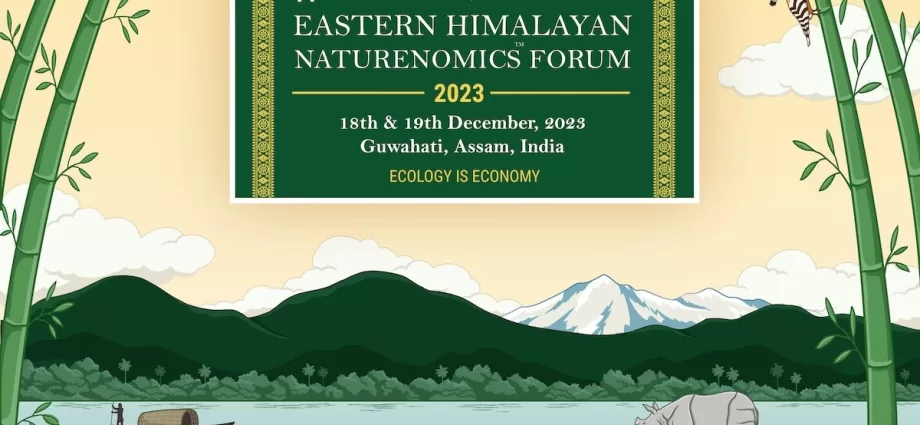Guwahati: The Balipara Foundation flagged off its 11th Eastern Himalayan Naturenomics Forum in Guwahati. This year’s theme is the call for the Great People’s Forest 2030. It brings together 60 people from over 15 countries to build a restoration agenda for the region. And they are aligned to the UN Decade of Restoration.
The theme derives from the Great People’s Forest initiative. It was launched in partnership between the Balipara Foundation and Conservation International earlier this year at the G20 in order to restore 1 million hectares of forests and farmlands by 2030. With partners including ATREE and TERI, the initiative will see work launch in spring 2024 through its first rapid-scaling portfolio launched at COP28.
The Forum began with a keynote from Chanakya Chaudhary, Director of Tata Steel Foundation and Vice President of Corporate Services at Tata Steel. This was followed by a discussion moderated by Nicholas Claxton, evaluating the implications of the recent proceedings and outcomes of COP28 for the Eastern Himalayan region.
The next session was moderated by Jason Knauf (Global Fellow, Conservation International). Dr Vandana Shiva, leading food sovereignty advocate and founder of Navdanya, Sourav Roy, CEO of Tata Steel Foundation, and Dr Sonali Ghosh, Kaziranga National Park’s first woman director, delved deeper into the opportunity in the Eastern Himalayan region in this session.
Panel discussions about restoration agendas for 2030 for Bhutan, Bangladesh and North East India followed. These touched on the key themes and challenges facing forest ecosystems and pathways for working collaboratively to ramp up already ongoing restoration work at scale.
Ranjit Barthaur, Founder of Balipara Foundation “Valuation is the key for Naturenomics. Leadership based on value is going to be the factor for any success.” He added that the happiness index is based on the nature of the person and if it is translating to the economy, it is valuable.
The event also included several other topics of the sector. In several sessions on policy and economy, youth power and technology, speakers explored how young people can be empowered as environmental leaders. And how remote-sensing technology and AI can play a role in mapping ecosystem health.
Gautam Mukhopadhya, Senior visiting fellow, Center Policy Research, India said “We are making great pledges on our forests at COP27 and COP28 at biodiversity conventions, but our actual policies on the ground like the Forest Conservation Amendment Act are reversing progress on this.”

